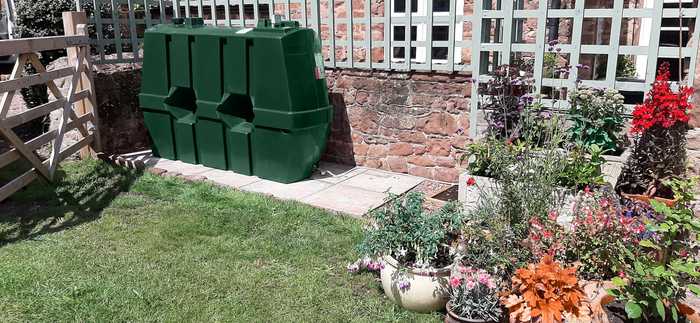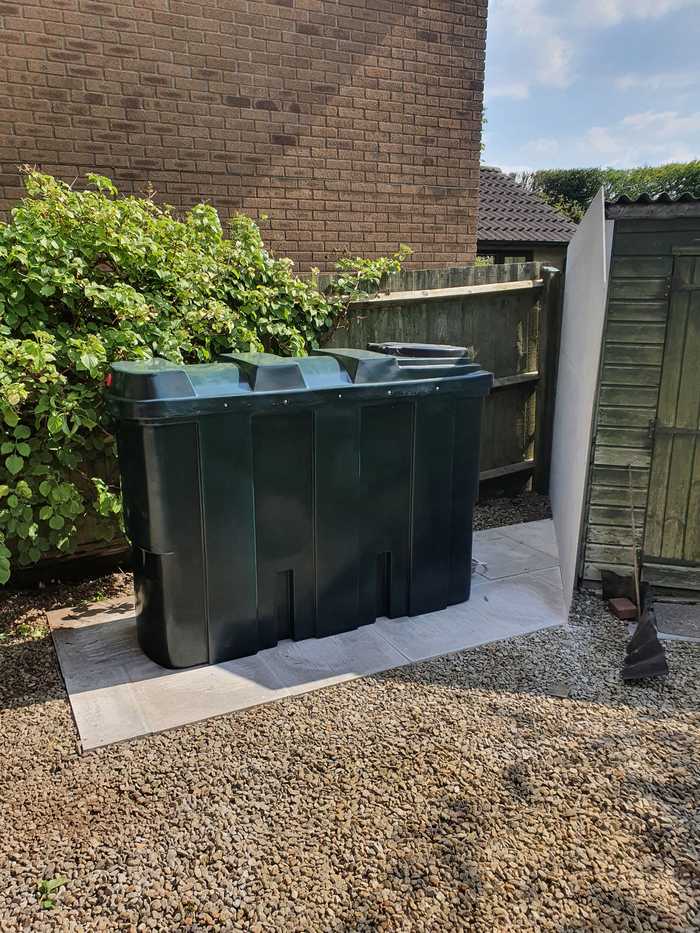What’s the Most Environmentally-Friendly Way of Disposing of an Old Oil Tank?

There are a whole host of factors that contribute to your oil tank needing to be removed and replaced. Perhaps you’ve had the same tank for 20+ years, the expected lifespan of a standard domestic tank, and it needs upgrading. Or it’s sustained irreparable damage and has become a safety hazard—or maybe you’ve simply moved home and your heating requirements have changed.
Whatever your circumstances, it’s vital that any old tank that’s being extracted from your property is disposed of in a safe and environmentally-responsible method. Let’s take a look at the options available to you…
Why do I need to remove my oil tank?
As discussed, you can expect your oil tank to last between 15-25 years before it needs replacing. No matter the build quality of your fuel container, or which material you choose, either steel or plastic, eventually the effects of time and the natural elements will begin to take their toll. If your tank is leaking or damaged, either a crack in the casing, serious dents or bulges, or if it has become discoloured, it is time to have it removed and disposed of by professional oil tank installation experts.
Your first port of call is to have your heating oil tank inspected and serviced by an OFTEC-registered heating engineer every year, along with your heating system. The engineer will identify any issues and advise whether your tank and oil tank base needs replacing.
Before a defunct oil tank is removed from your property, it’s important to use up any oil that might be left in the tank. This will make the removal job easier in the long run. Don’t let the oil level go too low, however, as contaminated oil at the bottom of the tank, full of sediment and dirt, can be sucked into the pipes and cause catastrophic problems with your heating system.
How an oil tank is removed and disposed of
This fundamental process must always be conducted by a specialist engineer. Generally, whether your tank is made from metal or plastic, the materials can be recycled, so we would always suggest a company, like CT Tanks, that has a recycling policy.
Whilst this process is quite straightforward, your OFTEC-registered technician will need the correct licence to discard any excess or contaminated oil, and the correct equipment to carry out the task—including a holding tank to store unwanted oil. Generally, the old tank will be replaced by a new one, so excess oil that isn’t contaminated can be put back into your new tank.
Here are the steps involved for safely removing and disposing of an old heating oil tank:
-
A test is carried out to see how much oil is in the tank, and how much of that oil is contaminated. Once this is complete, the oil is pumped out and any contaminants or water are separated.
-
The oil is then pumped out of the old tank into a holding tank, while a second tank is used to hold the contaminants.
-
Once the clean oil is in the holding tank, the waste oil is then collected and moved into a waste oil container and disposed of at a licensed site.
-
Once the old tank is completely empty, it is then detached from the site supply.
-
Depending on accessibility, the old tank will either be taken to the engineer’s vehicle in one piece or cut up on-site to avoid any damage to property.
-
The old oil tank then needs to be disposed of and recycled correctly in a way that does not cause any harm to the environment.

Can I remove and dispose of the oil tank myself?
The simple answer is no, you can’t, and we would advise strongly against doing so. The removal and disposal of an old oil tank must be carried out in conjunction with current Building Regulations.
An OFTEC-registered engineer will perform an assessment to decommission, remove and dispose of the old oil tank, making sure to mitigate any fire or environmental risks that may be involved with the process.
How can CT Tanks help?
If you think it’s time for a new oil tank, or have been advised by an OFTEC-registered engineer that your old tank is no longer fit for purpose, please don’t hesitate to get in touch with the team here at CT Tanks. We can offer all the help and guidance you need.
Posted on July 25th 2022

